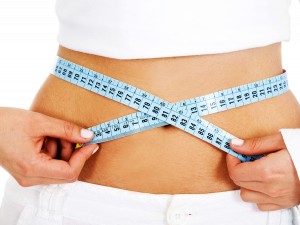 With the frigid cold temperatures that have been descending upon us, it is important to understand the signs and symptoms of frostbite and how to treat it. In addition to the first aid advice you might be given, I will also throw a “naturopathic spin” on it.
With the frigid cold temperatures that have been descending upon us, it is important to understand the signs and symptoms of frostbite and how to treat it. In addition to the first aid advice you might be given, I will also throw a “naturopathic spin” on it.
Signs and Symptoms
In frost bite, there are three stages, with the condition increasing in severity with the increase in stages.
Stage 1: Frostnip – in this stage, one may experience pins and needs that progress to numbness. The individual will also have red skin that feels cold.
Stage 2: Superficial frostbite – the skin will now be hard, pale, blue and cold, which turns to red sore skin after it thaws. The skin may also start to blister. In addition to this, the individual may have a burning sensation and swelling as the skin warms.
Stage 3: Deep frostbite – at this point, deeper damage is done in the form of joint and muscle stiffness, large blisters forming, and gangrene forming. In addition, tissues, nerves, and bones may even be damaged. In addition to these physical effects, the individual may also begin having effects to their cognition such as difficulty speaking, difficulty concentrating, some hysteria, etc.
Prevention
In order to prevent frostbite, certain measures should be taken:
- Limit your encounters in the cold when possible
- Bundle up, making sure that all skin is covered
- Wrap in layers to make sure you keep warm
- Wear only dry clothing
- Make sure you have adequate foot wear that is well insulated and keeps your feet dry
- Drink plenty of fluids
- Avoid alcohol and smoking
First Aid Approach
When you first notice signs of frostbite, go into a warm space immediately. Start by warming up the individual gently, such as giving them a warm blanket. Do not immediately go to putting their hands in very warm water as this can actually make the frostbite worse. Once they have been gently warmed then you can proceed to provide a warm (not hot) shower or rinse. If the individual has superficial frostbite, it may be necessary to take them to the hospital. However, in the case of deep frostbite, the individual needs to be taken to the hospital immediately.
Naturopathic Approach
Please note that the naturopathic approaches are not meant to be done instead of the first aid approaches, but are rather meant to compliment them and support them. These therapies are meant to be added to the first aid approaches that you should be taking. There are several different approaches that can be taken from a naturopathic perspective to help an individual who is suffering from frostbite.
Nutrients: Vitamin B3 (niacin) helps with vasodilation, which means it helps to increase circulation and get warm blood to the extremities or affected part of the body. Vitamin C is also a great nutrient to help improve circulation in general.
Homeopathy: The homeopathic remedy Agaricus is a general remedy for frostbite that can be given to an individual that has frostbite. Based on the principle of like cures like, this remedy has the following symptoms, making it well suited for frost bite: Burning and itching on both hands as if frozen; body parts are hot, swollen and red; pain and inflammation in frostbitten toes; shooting pains in fingers and toes; burning, red, itching ears as if frozen; frostbitten nose itches; chronic inflammation of the nose after exposures.
Botanicals: Use warming herbs and plants AFTER exposures have resolved in order to make sure circulation has not been compromised to the affected areas. Such herbs include garlic, onion, cayenne, ginger, mustard, and cinnamon. During the exposure, the individual may consume small amounts of these items in order to gently warm from the inside out. In addition, these herbs can be applied externally to the affected part in order to improve circulation, however this should be done cautiously as some of these herbs can burn the skin. Testing the skin before use for sensitivity should be done. In addition, applying aloe vera gel topically to the affected parts can help with the burning sensation that the individual experiences. Coconut oil can be applied externally as well due to its soothing effect, as well as warming effect. You can also have the affected individual drink a warming substance such as black tea, and add in some honey as this can be warming. Please note that you should avoid alcohol as this can make the condition worse.
Hydrotherapy: As mentioned above, a poultice with warming herbs can be applied to the affected areas, with the cautions taken into consideration. Following the frostbite incident, undergoing contrast showers can help to improve circulation and can also have a warming effect by the end of the treatment.
Have you benefitted from reading this blog? Know someone that would benefit as well? Share, Like, Comment, or Tweet this article, and let me know what you think.
Some of the information provided above may not be appropriate for everyone, please consult with your doctor before trying any of the above. If you are interested in Naturopathic Medicine and wanting a different approach to your health care needs, please book an appointment with Elisha Cook at the RSNC (416-498-9763), and let me help you achieve your health goals.


